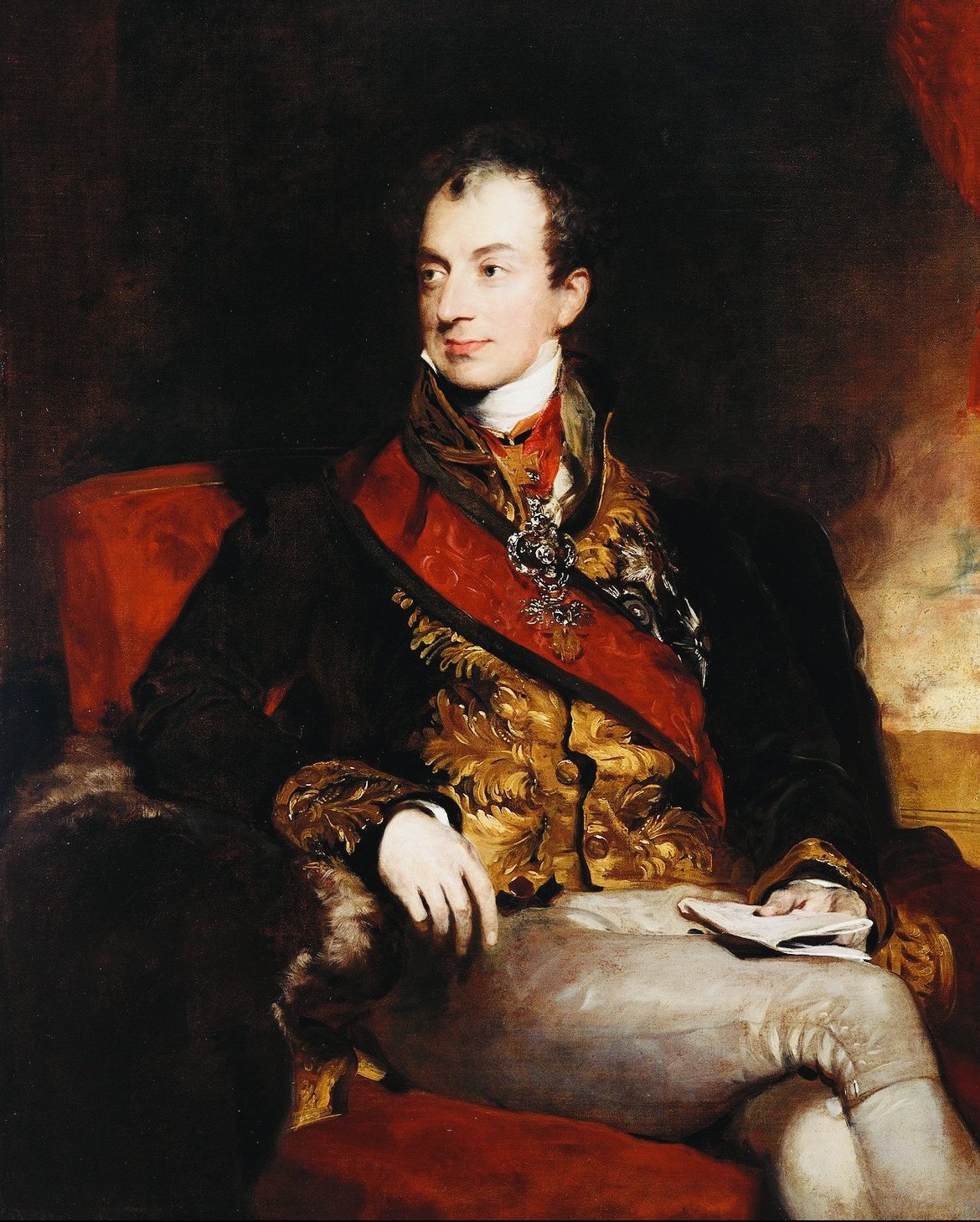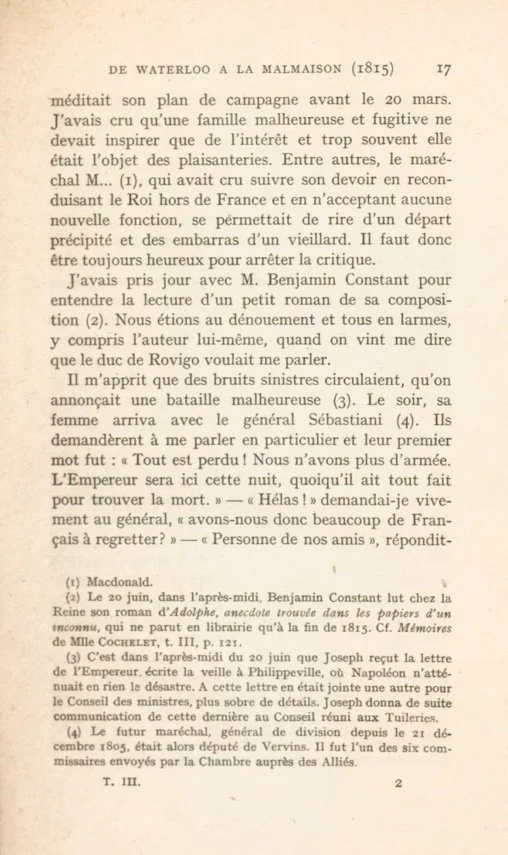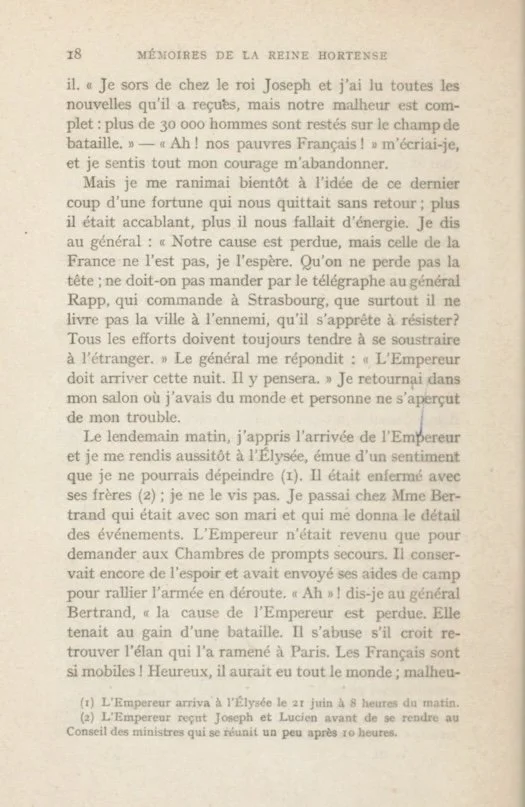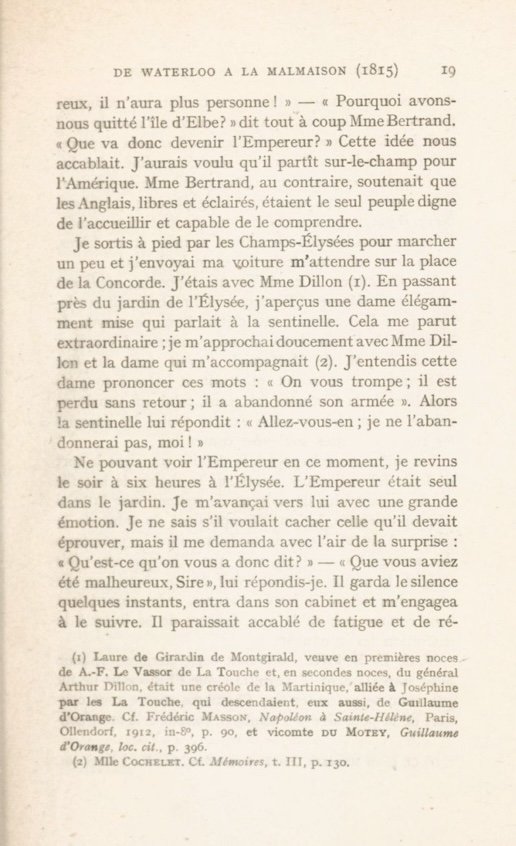Let’s have another look at Hortense’s Memoirs. If you want to read the book it is available for free at the side bar in English and French. Use the widget on the sidebar to translate the text below into pretty much any language.
Would Napoleon be betrayed this time again for the same selfish, bribery and blackmail reasons? Or will people finally learn to understand THEIR OWN BEST INTERESTS? Known proven and exposed terrorists can only triumph with a lot of willing collaborators backing them up. Without all that support, the actual terrorists who definitely did 911 and lots of other various death rituals (did you know death rituals often feature masks?) might actually become neutralized and humanity could start making progress again. Wouldn’t that be lovely?
Hortense’s memoirs continues:
“Alas," I queried hurriedly, "have many Frenchmen fallen?"
“None of our friends," replied the General. "I have just left King Joseph and I read all the dispatches he has received. The disaster is complete. More than thirty thousand men lie on the battle-field."
“Ah, our poor Frenchmen!" I exclaimed, and I felt all my courage leave me. But I quickly regained control of myself as the full extent of this new blow dawned on me.
Good fortune had definitely abandoned us, but the more cruel the wound the greater need for energy to resist its effects. I said to the General "Our cause is hopeless, but I trust all is not lost for France. We must keep cool. Should not word be dispatched to General Rapp, who is in command at Strasbourg, telling him at all costs not to surrender the city to the enemy, but to prepare to resist? All our efforts must be bent to the task of escaping the foreign invasion."
The General replied, "The Emperor will be here tonight. He has doubtless already thought of that." I returned to my drawing-room, and no one guessed by my attitude that anything special had taken place.
The next morning, I heard the Emperor was back. I at once hastened to the Elysée filled with emotions I cannot put into words. He was in conference with his brothers.
I did not see him. I went to see Madame Bertrand. She was with her husband and gave me details of what had taken place. The Emperor had only returned in order to ask the Senate and Chamber of Deputies for more support. He still hoped all was not over and had dispatched his aides-de-camp to rally the scattered troops.
“Ah," I said to General Bertrand, "the Emperor's cause is really lost this time. It was a question of winning a single battle. He is mistaken if he thinks he will meet with a reception similar to that which brought him back to Paris. The French are so changeable.
Had he won, everybody would have been on his side. He has been defeated; no one will support him." "Why did we ever leave Elba?" suddenly asked Madame Bertrand.
“What will become of the Emperor now?" This idea oppressed all of us. I should have wished him to leave immediately for America. Madame Bertrand, on the other hand, insisted the English, so liberal and enlightened in their ideas, were the only nation worthy of receiving him and capable of understanding him.
I went out on foot along the Champs Elysées and I sent my carriage to wait for me on the Place de la Concorde. I had Madame Dillon with me. As we passed the gardens of the Elysée I saw a well-dressed woman talking to the sentry on duty.
This seemed to me unusual. I approached quietly, accompanied by Madame Dillon and another lady who was in attendance. I heard the woman say, "You are being deceived. He is lost beyond hope of recovery. He has abandoned his army."
To this the sentinel replied, "Go away. I will never desert him." Not being able to see the Emperor just then I returned at six o'clock to the Elysée. He was alone in the garden. Deeply moved, I advanced to greet him. I cannot tell whether he wished to conceal his own emotion, but he assumed an air of surprise as he inquired,
“What is the matter? What have people been telling you?"
“That you have met with misfortune, Sire," I replied. He was silent for several moments, then turned and entered his study, motioning me to follow him. He appeared exhausted from moral and physical fatigue.
Sitting at his desk he unsealed a package of letters, but did not read them, and it was not until dinner was announced that he seemed aware of my presence.
“You have doubtless already dined," he said. "Will you come and keep me company?" I followed him.
During dinner he made only some insignificant remarks. He seemed sunk in a profound reverie. He returned to the drawing-room, where his brothers and mother joined him, went with them into the garden, and I left the palace. The Senate and Chamber, so I was told, were determined to depose the Emperor unless he abdicated immediately, and he was informed that this was the only means by which he could save France from a foreign invasion. The Powers had said so.
Monsieur de Metternich also wrote this to the Duc d'Otrante who, secretly, showed the letter to all the members of the Senate and Chamber. Thus, the man who turned to the spot where all the national forces centered in the hope of arousing the energy of the nation found everyone against him.
The original French is available below:





